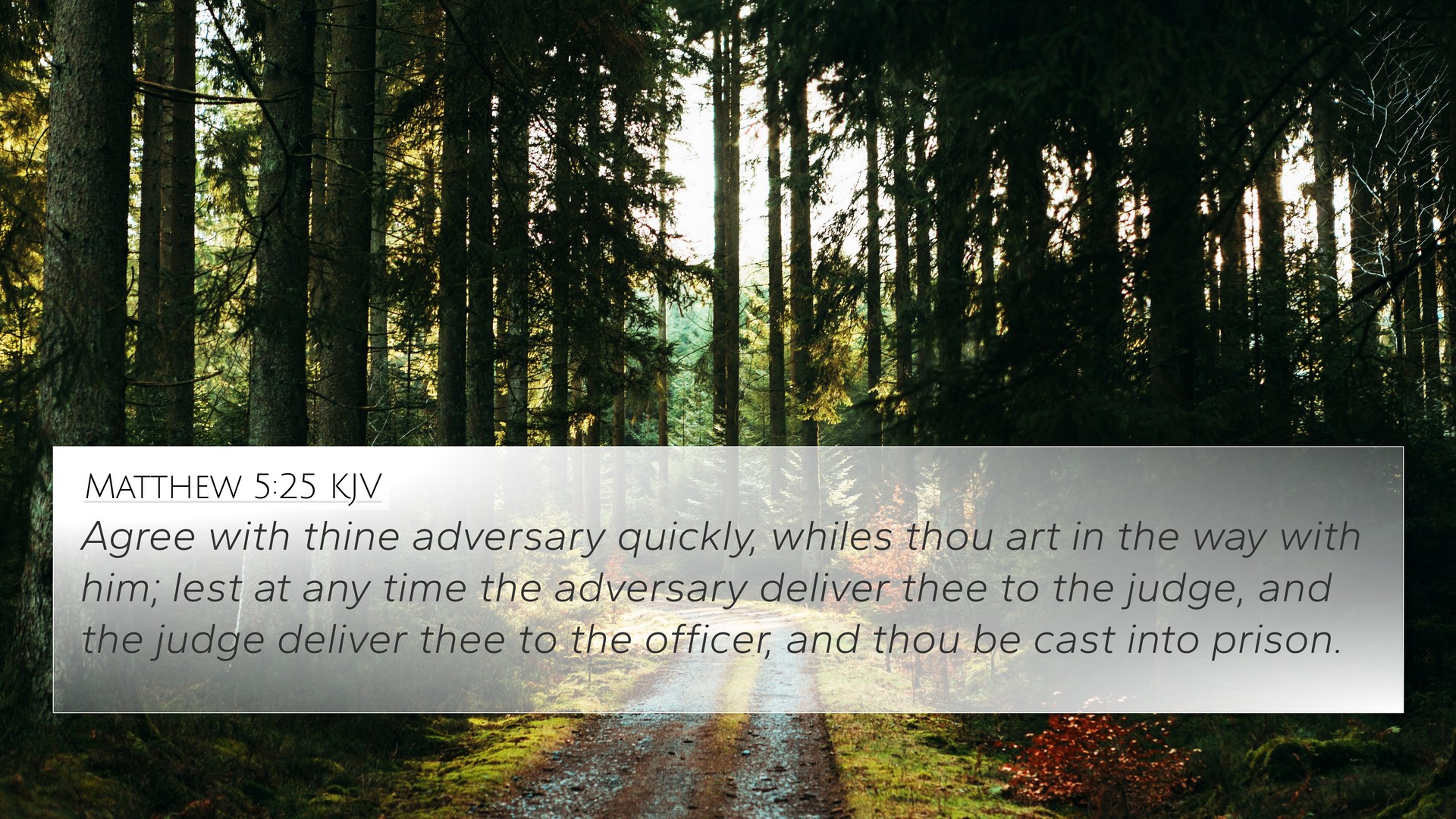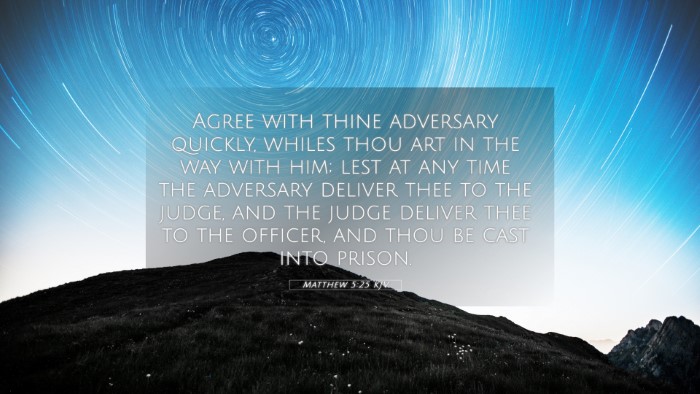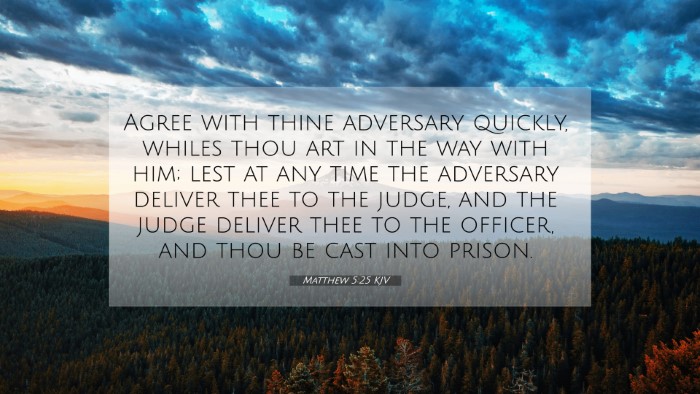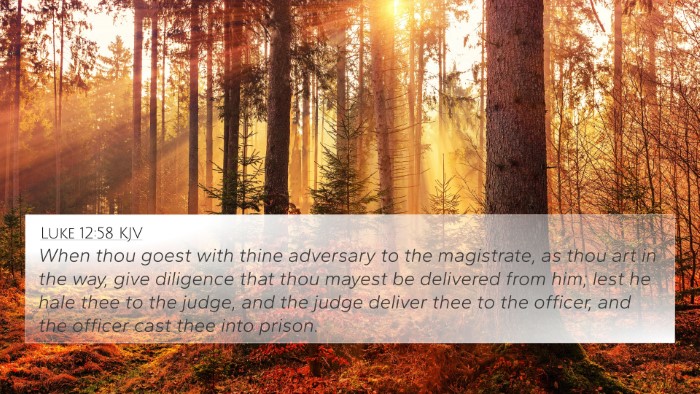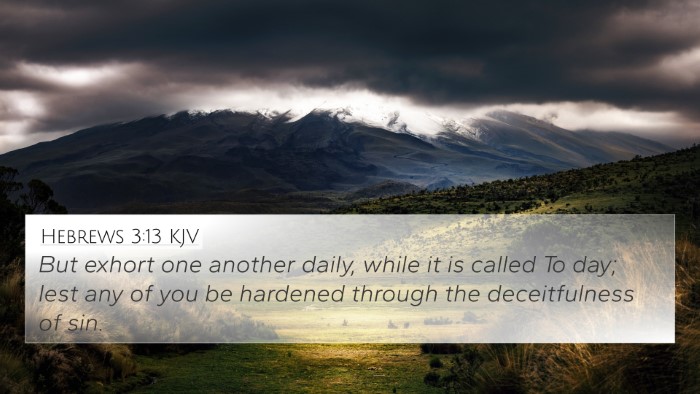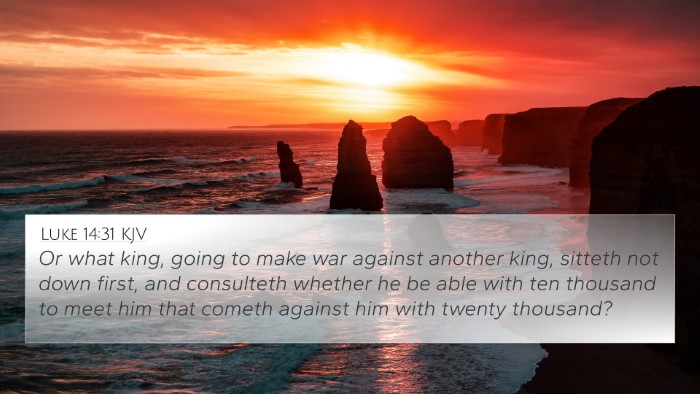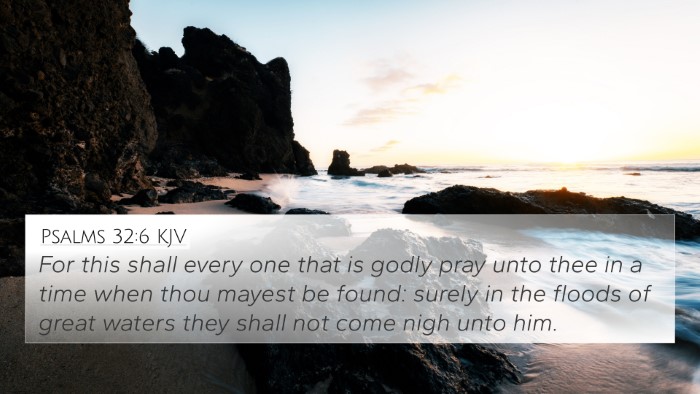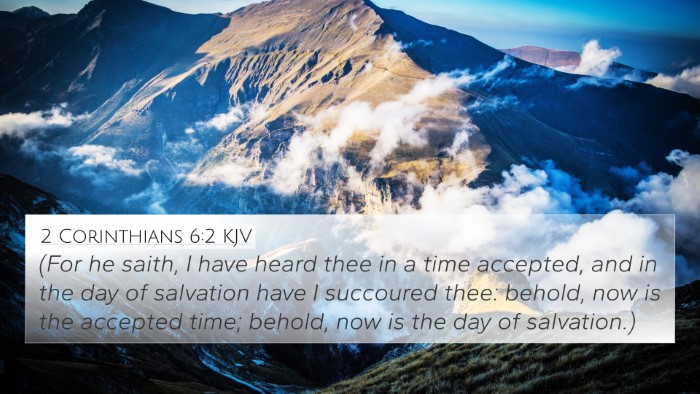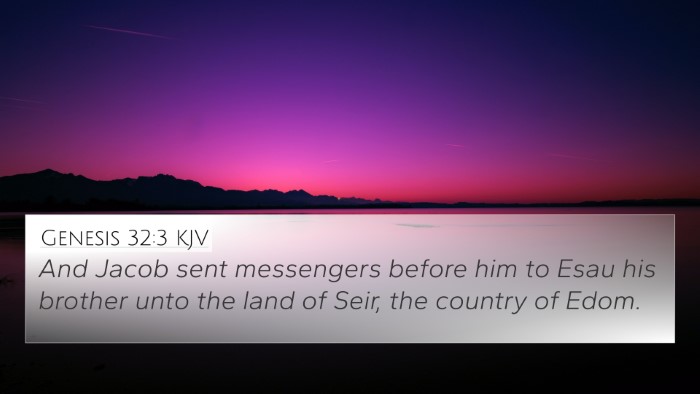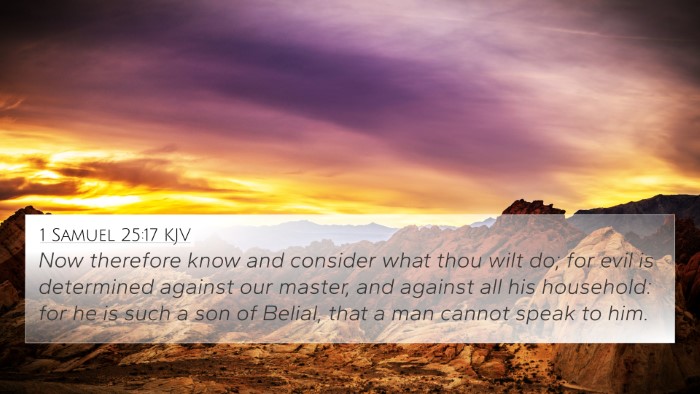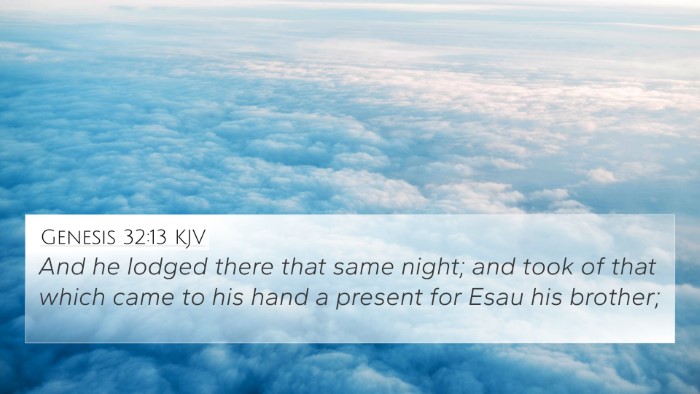Understanding Matthew 5:25
Verse: "Agree with your adversary quickly while you are on the way with him, lest your adversary deliver you to the judge, the judge hand you over to the officer, and you be thrown into prison." - Matthew 5:25 (NKJV)
This verse is part of the Sermon on the Mount, where Jesus imparts principles of generosity, mercy, and reconciliation. The specifics of this verse outline the importance of settling disputes amicably and not allowing anger or grievances to escalate into something more serious.
Interpretation and Insights
Here is a summary of insights from various public domain commentaries:
-
Matthew Henry:
Henry emphasizes the urgency of reconciliation, suggesting that one should seek to resolve conflicts before they escalate. He views Jesus' teachings here as guidance against the bitterness that can arise from prolonged disputes.
-
Albert Barnes:
Barnes notes that "adversary" refers to any opponent in this context, reflecting the necessity of maintaining relationships in one's earthly journey. We are reminded that delaying resolution can lead to severe consequences, including legal repercussions.
-
Adam Clarke:
Clarke discusses the metaphor of judgment, highlighting how human conflicts can lead to divine judgment if left unresolved. He stresses that accepting a humble and peaceful resolution can catalyze spiritual growth and harmony.
Key Themes in Matthew 5:25
This verse encapsulates several key themes important for believers:
- Reconciliation: The need to quickly resolve disagreements to avert escalation.
- Urgency of God’s Kingdom: Prompt action reflects the nature of God's kingdom, emphasizing peace and forgiveness.
- Human Relationships: The teaching serves as a practical approach to managing interpersonal disputes, significant for maintaining community harmony.
- Justice and Judgment: Acknowledgment of legal systems that govern societal interactions and the consequences of unresolved conflict.
Cross-References to Matthew 5:25
Several other Bible verses resonate with the teachings found in Matthew 5:25:
- Luke 12:58: "When you go with your adversary to the magistrate, make every effort along the way to settle with him." This verse echoes the same sentiment of resolving disputes expeditiously.
- Romans 12:18: "If it is possible, as much as depends on you, live peaceably with all men." This aligns with the call for peace and reconciliation in relationships.
- Matthew 18:15: "Moreover, if your brother sins against you, go and tell him his fault between you and him alone." Here, the emphasis on addressing conflicts privately mirrors the advice given in Matthew 5:25.
- James 1:19: "So then, my beloved brethren, let every man be swift to hear, slow to speak, slow to wrath." This reinforces patience and discernment in our responses to conflicts.
- Proverbs 15:1: "A soft answer turns away wrath, but a harsh word stirs up anger." This highlights the effectiveness of gentleness when resolving disputes, akin to the call for quick agreement in Matthew 5:25.
- 1 Peter 3:9: "Not returning evil for evil or reviling for reviling, but on the contrary blessing." This shows the higher principle of responding to conflict with a blessing, analogous to the spirit of reconciliation.
- Isaiah 1:18: "Come now, and let us reason together," says the Lord. This invitation demonstrates God's desire for dialogue and resolution, establishing a theme of reconciliation throughout Scripture.
The Importance of Cross-Referencing Bible Verses
Cross-referencing Bible verses enriches our understanding and reveals the interconnectedness of Scripture. It allows the reader to explore:
- Thematic Connections: Finding common themes across different books enhances comprehension.
- Comparative Analysis: Analyzing similar verses provides a deeper insight into Biblical principles.
- Contextual Understanding: Contextualizing verses helps to grasp the original intent and audience of Biblical texts.
Tools for Bible Cross-Referencing
To effectively cross-reference, consider using:
- Bible Concordance: A reference tool that lists words and phrases found in the Bible along with their locations.
- Bible Cross-Reference Guide: Guides that systematically present connections between verses.
- Bible Reference Resources: Various compilations that help explore relational study across the scriptures.
Conclusion
The wisdom found in Matthew 5:25 transcends simply resolving disputes; it emphasizes the Christian ethos of peacemaking. Engaging with this verse through cross-referencing provides a holistic understanding of its implications for personal faith and community relationships. It encourages believers to embody the principles of reconciliation, harmony, and judicious conflict resolution as they navigate their spiritual journey.
FAQs: Understanding Bible Verses and Their Connections
- What verses are related to Matthew 5:25? There are several, including Luke 12:58 and Romans 12:18, which both emphasize reconciliation.
- How do Matthew 5:25 and Proverbs 15:1 correlate? Both emphasize the importance of gentleness in communication during conflicts.
- Why is cross-referencing important in Bible study? It helps to see the full picture of Biblical teachings and ensures a comprehensive understanding of scripture.
